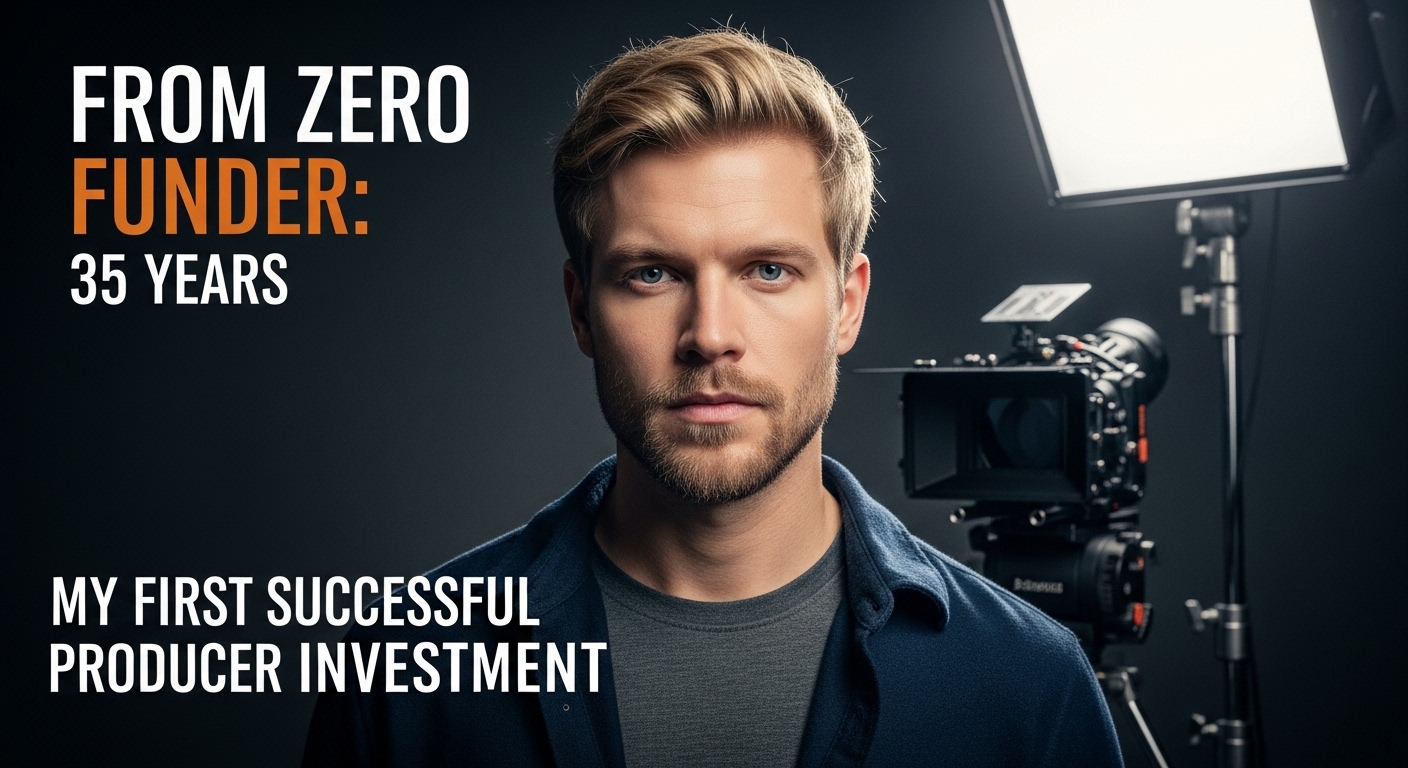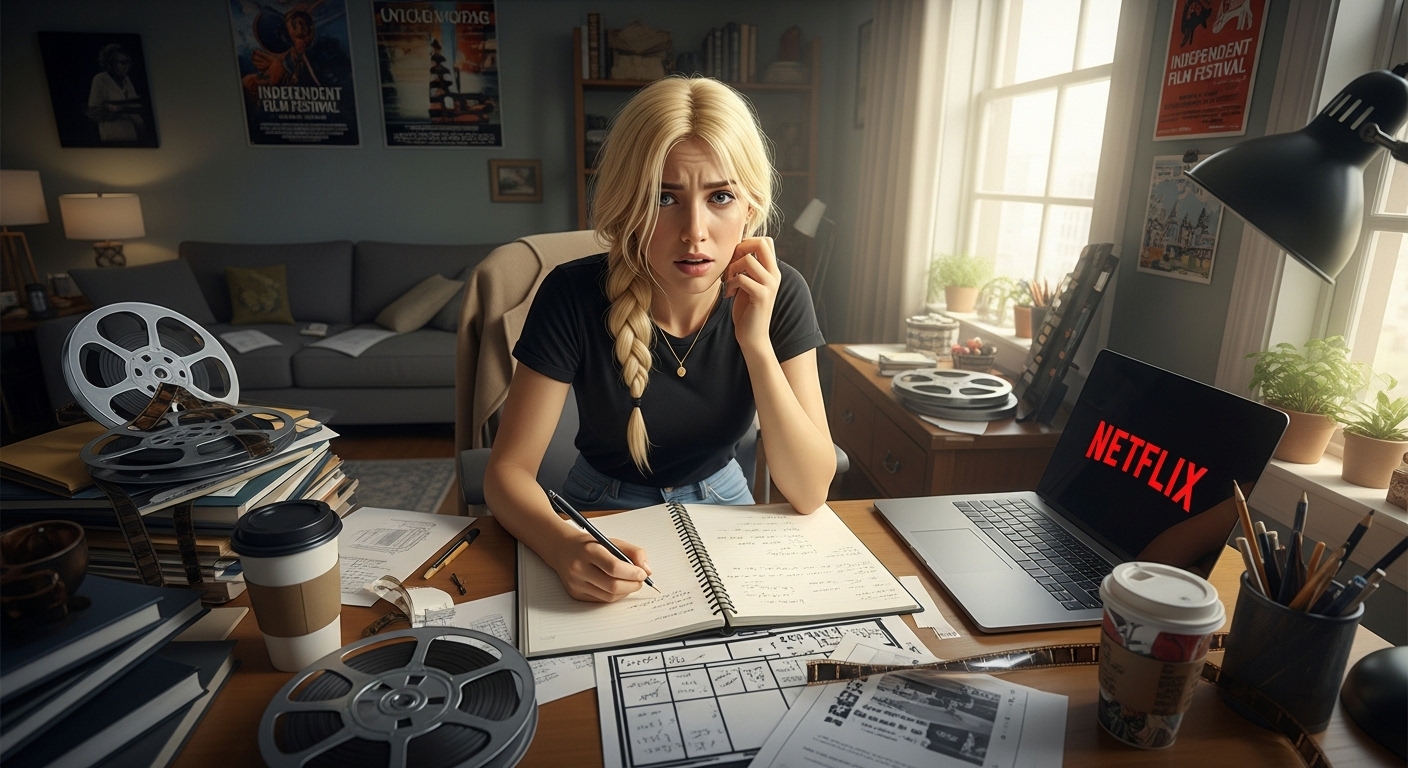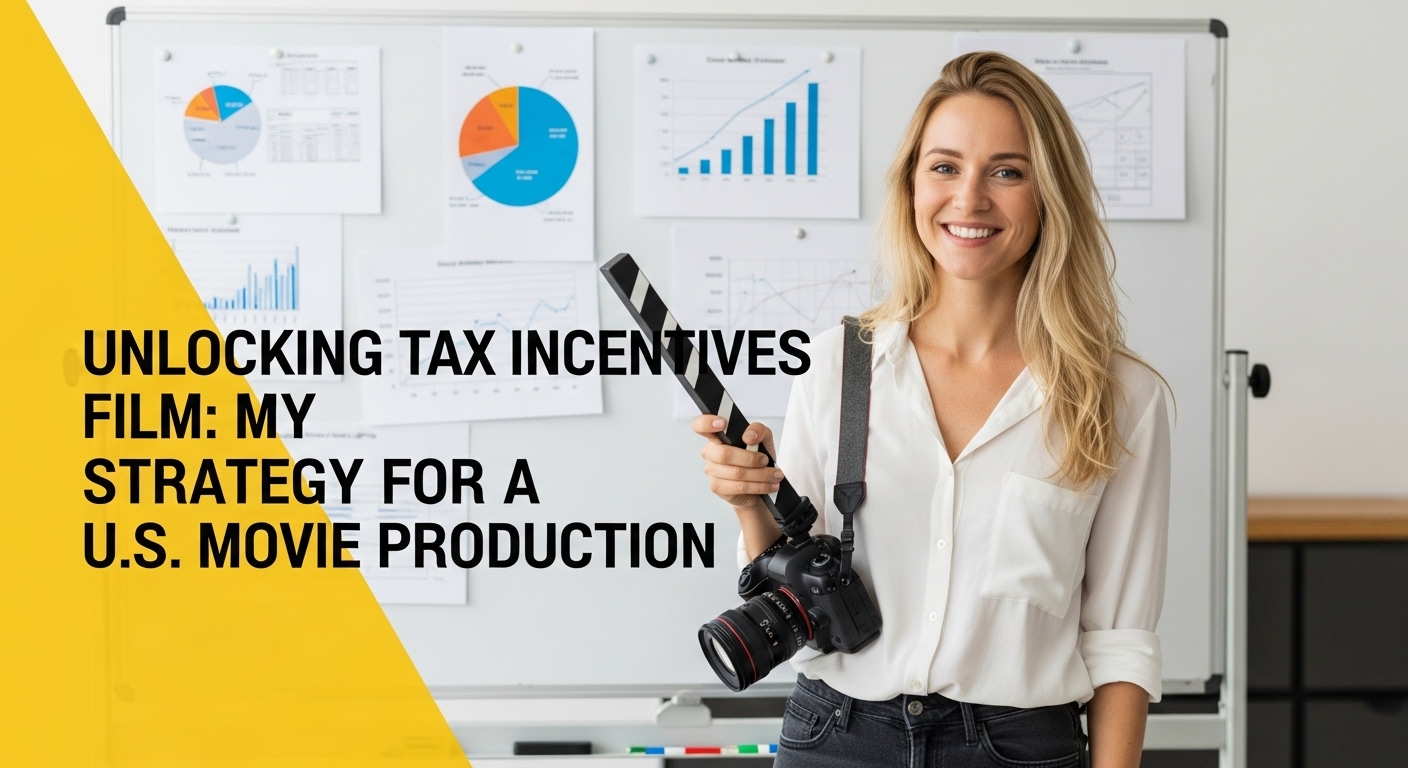Film editing is a crucial part of the filmmaking process, shaping the narrative and emotional impact of a movie. This guide will walk you through the steps to become a successful film editor.
Understanding the Role of a Film Editor.
Key Responsibilities.
Film editors are responsible for:
- Assembling raw footage into a coherent narrative
- Collaborating with directors to realize their vision
- Selecting the best takes and shots
- Pacing the story and creating rhythm
- Adding and adjusting sound elements
Skills Required.
Essential skills for film editors include:
- Storytelling ability
- Technical proficiency with editing software
- Attention to detail
- Creativity and problem-solving skills
- Ability to work under pressure and meet deadlines
Educational Pathways.
Formal Education.
- Bachelor’s degree in Film Studies, Media Production, or related fields
- Specialized courses in film editing at art schools or film academies
- Master’s programs in Film Editing for advanced study
Self-Taught Route.
- Online courses and tutorials
- Practice with free editing software
- Creating and editing your own short films or videos
Mastering the Tools of the Trade.
Software Proficiency.
Become proficient in industry-standard editing software:
- Adobe Premiere Pro
- Avid Media Composer
- Final Cut Pro X
- DaVinci Resolve
Hardware Knowledge.
Understand the hardware requirements for efficient editing:
- High-performance computers
- Multiple monitors
- External hard drives and RAID systems
- Color-accurate displays
Building Your Skills.
Practice Editing Techniques.
- Continuity editing
- Montage
- Cross-cutting
- Match cuts
- Jump cuts
Develop Your Eye.
- Study films critically, focusing on editing techniques
- Analyze different editing styles across genres
- Practice re-editing existing scenes to understand different approaches
Gaining Practical Experience.
Internships and Entry-Level Positions.
- Look for internships at production companies or post-production houses
- Apply for assistant editor positions to learn the workflow
- Work on student films or independent projects
Building a Portfolio.
- Edit short films, music videos, or documentaries
- Create a demo reel showcasing your best work
- Develop a professional website to display your portfolio
Networking and Industry Connections.
Attend Film Festivals and Industry Events.
- Sundance Film Festival
- SXSW Film Festival
- American Cinema Editors (ACE) EditFest
Join Professional Organizations.
- American Cinema Editors (ACE)
- Motion Picture Editors Guild
- Local filmmaking groups or meetups
Developing Your Career.
Specialization Options.
Consider specializing in specific areas:
- Feature films
- Television shows
- Documentaries
- Commercials or music videos
- Trailers
Continuing Education.
Stay updated with industry trends and technologies:
- Attend workshops and masterclasses
- Learn new software and techniques
- Keep up with advancements in film technology
Understanding the Business Side.
Freelance vs. Studio Work.
- Pros and cons of freelance editing
- Benefits and challenges of working for a studio or production company
- Building a sustainable career in either path
Negotiating Contracts and Rates.
- Understanding industry standard rates
- Learning to negotiate fair compensation
- Managing your finances as a freelancer or employee
Cultivating Soft Skills.
Communication.
- Collaborating effectively with directors and producers
- Articulating your creative decisions
- Giving and receiving constructive feedback
Time Management.
- Meeting tight deadlines
- Balancing multiple projects
- Maintaining work-life balance in a demanding industry
Staying Inspired and Motivated.
Finding Your Editing Style.
- Experiment with different genres and techniques
- Develop your unique approach to storytelling through editing
- Stay true to your artistic vision while meeting project requirements
Embracing New Challenges.
- Take on diverse projects to broaden your skills
- Adapt to new technologies and workflows
- Be open to feedback and continuous improvement
Ethics and Professionalism.
Understanding Editorial Ethics.
- Maintaining the integrity of the story
- Respecting the director’s vision
- Ethical considerations in documentary editing
Professional Conduct.
- Maintaining confidentiality
- Meeting deadlines and commitments
- Building a reputation for reliability and quality work
The Future of Film Editing.
Emerging Technologies.
- Virtual Reality (VR) and 360-degree video editing
- Artificial Intelligence in editing processes
- Cloud-based collaborative editing platforms
Adapting to Industry Changes.
- Streaming platforms and their impact on editing styles
- Shorter attention spans and their influence on pacing
- The rise of interactive and non-linear storytelling
Crafting Your Path.
Becoming a successful film editor requires a combination of technical skills, artistic vision, and industry knowledge. By following this guide, aspiring editors can build a strong foundation for a rewarding career in film editing. Remember, the journey to becoming a great editor is ongoing – continue learning, adapting, and honing your craft throughout your career.
Understanding the Role of a Film Editor.
The Art of Storytelling Through Editing.
As a film editor, your primary role is to weave together the raw footage into a compelling narrative. It’s not just about cutting and pasting clips; it’s about crafting the rhythm, pacing, and emotional journey of the film. I remember the first time I truly understood this power. I was working on a small indie drama, and by simply rearranging a few scenes, I completely changed the audience’s perception of the main character. It was a lightbulb moment – I realized that editing isn’t just a technical skill, it’s an art form that can make or break a film.
Collaboration and Vision.
Editors work closely with directors to bring their vision to life. This collaboration is often where the magic happens. I’ve had projects where the director had a clear vision from the start, and others where we discovered the heart of the story together in the editing room. Being able to communicate effectively, offer creative solutions, and sometimes even challenge the director’s ideas (respectfully, of course) is crucial. It’s a delicate balance of asserting your creative input while respecting the overall vision of the project.
Educational Pathways.
The Value of Formal Education.
While it’s possible to become an editor without a formal degree, I found my film studies background invaluable. University provided me with a deep understanding of film history, theory, and techniques that I draw upon daily in my work. It also offered opportunities to work on student films, building both my skills and my network. However, I’ve worked with brilliant editors who were entirely self-taught, so there’s no one-size-fits-all approach.
The Self-Taught Journey.
For those choosing the self-taught route, discipline is key. I’d recommend starting with online courses from platforms like Coursera or Masterclass. Then, practice, practice, practice. Edit anything you can get your hands on – home videos, stock footage, or volunteer for local filmmakers. I know editors who started by re-cutting trailers or creating fan edits, which is an excellent way to hone your skills and showcase your creativity.
Mastering the Tools of the Trade.
The Software Landscape.
Proficiency in editing software is non-negotiable in this field. When I started, Final Cut Pro was the industry standard, but the landscape has shifted. Now, I primarily use Adobe Premiere Pro and Avid Media Composer, depending on the project. Learning multiple platforms has been crucial for my career flexibility. Don’t just learn the basics – dive deep into keyboard shortcuts, plugins, and advanced features. The more efficient you are with the tools, the more brain space you have for creative decisions.
The Importance of Hardware.
Your editing setup can significantly impact your workflow and productivity. I learned this the hard way when I first started, trying to edit on an underpowered laptop. Now, I invest in a high-performance workstation with multiple monitors, a color-accurate display, and a robust storage system. Remember, time is money in this industry, and the right hardware can save you hours of frustration.
Building Your Skills.
The Never-Ending Learning Curve.
Editing techniques are constantly evolving, and staying on top of trends is crucial. I make it a point to study one new technique or style each month. For instance, I spent weeks dissecting the editing in “Whiplash” to understand how it created such intense rhythm and energy. Experimenting with different styles not only broadens your skillset but also helps you find your unique voice as an editor.
Developing Your Editorial Eye.
Watching films critically has become second nature to me now, but it took practice. I started by muting films and focusing solely on the visual cuts and transitions. Then I’d watch again, paying attention to how the sound editing complemented the visuals. This practice has been invaluable in developing my instincts for pacing and emotional impact.
Gaining Practical Experience.
The Humble Beginnings.
My first job in the industry was as a post-production runner – basically getting coffee and organizing hard drives. But I used every opportunity to observe and learn. I’d stay late to watch the editors work, ask questions during downtime, and volunteer to help with any task related to editing. This hands-on experience was priceless, teaching me not just technical skills but also the professional etiquette and workflow of a real editing room.
Building a Diverse Portfolio.
As you’re starting out, say yes to every editing opportunity you can. I’ve edited everything from wedding videos to corporate training materials. Each project, no matter how small, taught me something new and helped build my portfolio. Don’t underestimate the value of these diverse experiences – they not only sharpen your skills but also help you discover what types of projects you enjoy most.
Networking and Industry Connections.
The Power of Film Festivals.
Attending film festivals has been one of the most rewarding aspects of my career. Not only do you get to see cutting-edge films, but you also meet fellow professionals who are passionate about the craft. I’ve gained clients, mentors, and lifelong friends from festival networking. Even if you’re shy like I was, push yourself to attend panels, workshops, and social events. The connections you make can be just as important as your technical skills.
Professional Organizations: Your Career Allies.
Joining organizations like the American Cinema Editors (ACE) was a game-changer for me. These groups offer educational resources, job listings, and networking events that can significantly boost your career. They also provide a sense of community in what can sometimes be a solitary profession. I’ve found mentors through these organizations who have guided me through crucial career decisions.
Developing Your Career.
Finding Your Niche.
As you gain experience, you might find yourself drawn to certain types of projects. For me, it was documentary editing. I love the challenge of crafting a narrative from real-life footage. Specializing can help you stand out in a competitive field, but be careful not to pigeonhole yourself too early in your career. Versatility is valuable, especially when you’re starting out.
The Importance of Continuing Education.
The film industry is constantly evolving, and staying relevant means committing to lifelong learning. I make it a point to attend at least one major workshop or masterclass each year. These events not only teach new skills but also reignite my passion for the craft. Whether it’s learning a new software, exploring VR editing, or studying color grading, there’s always something new to master.
Understanding the Business Side.
Navigating Freelance vs. Studio Work.
I’ve experienced both worlds – the stability of studio work and the flexibility of freelancing. Each has its pros and cons. Studio work offered me consistent income and the chance to work on big-budget projects, but I often felt creatively constrained. Freelancing gives me more creative freedom and diverse projects, but the inconsistent income can be stressful. Finding the right balance or path depends on your personal goals and risk tolerance.
The Art of Negotiation.
Learning to negotiate fair rates was one of the most challenging aspects of my career. In the beginning, I undervalued my work, afraid to lose opportunities. Over time, I learned that setting proper rates not only ensures fair compensation but also garners respect from clients. I now approach negotiations with confidence, armed with knowledge of industry standards and a clear understanding of the value I bring to each project.
Cultivating Soft Skills.
The Art of Communication.
As an editor, I quickly learned that technical skills alone weren’t enough. The ability to communicate effectively is paramount. I remember one project where I struggled to articulate my creative decisions to the director. It led to misunderstandings and wasted time. From that experience, I developed a habit of keeping a ‘decision journal’ for each project, noting why I made certain cuts or transitions. This not only helped me explain my choices more clearly but also improved my own decision-making process.
Mastering Time Management.
In the world of film editing, deadlines are sacred. Early in my career, I underestimated the time needed for rendering, client revisions, and unexpected technical issues. This led to some stressful all-nighters and compromised work. Now, I use project management tools and build buffer time into every schedule. I’ve also learned the importance of managing client expectations. Clear communication about timelines and potential challenges has saved me countless headaches and maintained positive client relationships.
Staying Inspired and Motivated.
Developing Your Unique Voice.
Finding your editing style is a journey of self-discovery. For years, I tried to emulate the styles of editors I admired, but it always felt forced. It wasn’t until I started trusting my instincts and embracing my quirks that I truly found my voice. Now, clients come to me specifically for my style. Don’t be afraid to experiment and let your personality shine through your work. Your unique perspective is your greatest asset in this industry.
Embracing Challenges as Growth Opportunities.
There have been projects that pushed me to my limits, technically and creatively. One documentary I worked on required me to sift through hundreds of hours of footage in multiple languages. It was overwhelming at first, but I developed new organizational systems and editing techniques out of necessity. These challenges, while stressful, have been the catalyst for my biggest growth spurts as an editor. I’ve learned to view each difficult project as an opportunity to level up my skills.

Ethics and Professionalism.
Navigating Ethical Dilemmas.
Ethics in editing is a topic close to my heart, especially in documentary work. I once faced a situation where using a particular clip would have made for a more dramatic scene, but it would have taken the subject’s words out of context. These moments test your integrity as an editor. I’ve learned to prioritize truth and fairness over sensationalism. Building a reputation for ethical work may not always be the easiest path, but it’s crucial for long-term success and personal satisfaction in this field.
Building a Professional Reputation.
In an industry that often relies on word-of-mouth recommendations, your reputation is everything. Early in my career, I made the mistake of overpromising and underdelivering on a project. The stress of trying to meet unrealistic deadlines affected the quality of my work and damaged a potentially valuable relationship. Now, I’m known for my honesty and reliability. I’ve found that clients appreciate transparency about what can realistically be achieved within given time and budget constraints.
The Future of Film Editing.
Adapting to Technological Advancements.
The landscape of film editing is constantly evolving with new technologies. When I first started, the idea of cloud-based collaborative editing seemed like science fiction. Now, it’s a regular part of my workflow. I’ve made it a habit to allocate time each month to explore new tools and techniques. Whether it’s experimenting with AI-assisted editing software or learning about blockchain in film distribution, staying ahead of the curve has helped me remain relevant in a rapidly changing industry.
Embracing New Storytelling Formats.
The rise of streaming platforms and interactive media has opened up exciting new possibilities for editors. I recently worked on an interactive film project that required a completely different approach to narrative structure. It challenged everything I knew about traditional editing and pushed me to think in non-linear terms. As editors, we need to be ready to adapt our skills to new formats and platforms. The fundamentals of storytelling remain the same, but the tools and techniques are constantly evolving.
Conclusion: Crafting Your Path.
Reflecting on the Journey.
Looking back on my journey as a film editor, I’m struck by how much the field has changed and yet how the core principles remain the same. The path to becoming a successful editor is rarely straightforward. It’s a combination of technical skill, artistic vision, people skills, and business acumen. There have been moments of doubt, late nights of frustration, and the thrill of seeing a project come together perfectly.
Advice for Aspiring Editors.
To those starting out, I would say: be patient with yourself, but never stop pushing to improve. Edit anything you can get your hands on. Watch films critically. Network genuinely. Embrace new technologies but don’t forget the fundamental principles of storytelling. Most importantly, remember that every editor brings a unique perspective to their work. Your individual experiences, tastes, and instincts are what will set you apart in this field.
The Ongoing Evolution.
As I continue in my career, I’m excited by the ever-changing landscape of film and video. The lines between different media are blurring, creating new opportunities for innovative storytelling. Whether you’re just starting out or are a seasoned professional, the key to success in film editing is to remain curious, adaptable, and passionate about the craft.
Remember, becoming a film editor is not just about learning a set of skills; it’s about developing an instinct for storytelling and rhythm, cultivating relationships in the industry, and constantly evolving with the medium. It’s a challenging path, but for those who love it, there’s no more rewarding career.
The Emotional Rollercoaster of Editing.
Dealing with Creative Blocks.
One aspect of editing that isn’t often discussed is the emotional toll it can take. I remember a period early in my career when I was working on a particularly challenging feature film. I hit a creative block that lasted for days. The footage wasn’t coming together, and I felt like I was letting the director down.
During this time, I learned the importance of stepping away from the project. I started taking long walks, listening to music unrelated to the film, and even picked up meditation. These practices not only helped me overcome the block but have since become essential parts of my creative process. I’ve learned that sometimes, the best thing you can do for a project is to give your mind a break and return with fresh eyes.
The Thrill of Problem-Solving.
On the flip side, there’s an indescribable thrill when you solve a tricky editing problem. I once worked on a documentary where a crucial interview was poorly shot – the audio was barely audible, and the visuals were underexposed. Instead of scrapping the footage, I spent days experimenting with audio restoration tools and visual effects.
The moment when I finally got the footage to a usable state was exhilarating. It reinforced for me that editing is as much about problem-solving as it is about creativity. These challenges, while stressful, are often what make the job so rewarding.
The Importance of Mentorship.
Finding and Being a Mentor.
One of the most significant factors in my growth as an editor was finding a mentor. Early in my career, I was fortunate enough to work alongside an experienced editor who took me under their wing. They not only taught me technical skills but also shared insights into the industry, client relationships, and work-life balance.
Now, as I’ve advanced in my career, I make it a point to mentor younger editors. Sharing knowledge not only helps newcomers but also keeps me sharp and connected to the evolving landscape of editing. I encourage all aspiring editors to seek out mentorship opportunities, and for experienced editors to consider becoming mentors themselves.
The Business of Editing.
Building Your Brand as an Editor.
As I progressed in my career, I realized that being a great editor wasn’t enough – I needed to learn how to market myself. I started by creating a website showcasing my best work. I also began writing articles about editing techniques and sharing them on LinkedIn and industry forums.
This not only helped me gain visibility but also positioned me as an expert in my field. I’ve received job offers and collaboration opportunities directly from these efforts. Personal branding might feel uncomfortable at first, especially for those of us who prefer to work behind the scenes, but it’s become an essential part of a successful editing career.

Navigating Industry Politics.
One aspect of the job that took me by surprise was the need to navigate industry politics. In post-production houses and on large projects, there can be complex dynamics between different departments, producers, and creatives.
I once found myself in a situation where there was tension between the director and the producer, with conflicting instructions being given to me. Learning to diplomatically handle these situations, to communicate clearly, and to find compromises that serve the project has been crucial. It’s a skill that’s as important as any technical proficiency in editing software.
The Physical Toll and Self-Care.
Maintaining Health in a Sedentary Job.
The physical demands of editing are often overlooked. Sitting for long hours, staring at screens, and the stress of deadlines can take a toll on your health. I learned this the hard way when I developed severe back problems and eye strain a few years into my career.
Now, I’m proactive about my health. I use a standing desk, take regular breaks to stretch and move, and have invested in ergonomic equipment. I also schedule time for physical activity, even during busy periods. Maintaining physical health is crucial for sustaining a long-term career in editing.
The Evolution of Storytelling.
Adapting to New Narrative Structures.
As streaming platforms have risen in popularity, I’ve noticed a shift in narrative structures. Binge-watching has changed how stories are paced and how information is revealed. I’ve had to adapt my editing style accordingly.
For instance, I recently worked on a streaming series where we experimented with non-linear storytelling and cliffhangers at the end of each episode. This required a different approach to pacing and information reveal compared to traditional TV or film editing. Staying flexible and open to these new storytelling methods has been crucial in keeping my skills relevant.
The Global Perspective.
Working Across Cultures.
One of the most enriching aspects of my career has been the opportunity to work on international projects. I’ve edited films in languages I don’t speak, working with translators and subtitles. These experiences have broadened my perspective on storytelling and reminded me of the universal language of visual narrative.
However, they’ve also presented unique challenges. I’ve had to navigate cultural differences in pacing, humor, and visual metaphors. These experiences have made me a more versatile and culturally aware editor.
The Future of Editing.
Embracing AI and Machine Learning.
As we look to the future, AI and machine learning are becoming increasingly prevalent in editing. I’ve started experimenting with AI-assisted tools for tasks like automatic transcription and basic assembly edits.
While some editors fear these technologies will replace human editors, I see them as tools that can free us up to focus on the more creative aspects of editing. Understanding and embracing these technologies, while maintaining the human touch that brings emotion and nuance to storytelling, will be crucial for editors moving forward.
In conclusion, the journey to becoming a film editor is ongoing, filled with challenges, learning opportunities, and moments of creative triumph. It’s a career that demands technical skill, artistic sensitivity, adaptability, and interpersonal savvy. But for those who are passionate about storytelling and visual communication, there’s no more rewarding path.

I am a highly experienced film and media person who has a great deal to offer to like-minded individuals. Currently working on several exciting projects, I am a film and media practitioner for over a decade. I have achieved a great deal of success in my professional career.





